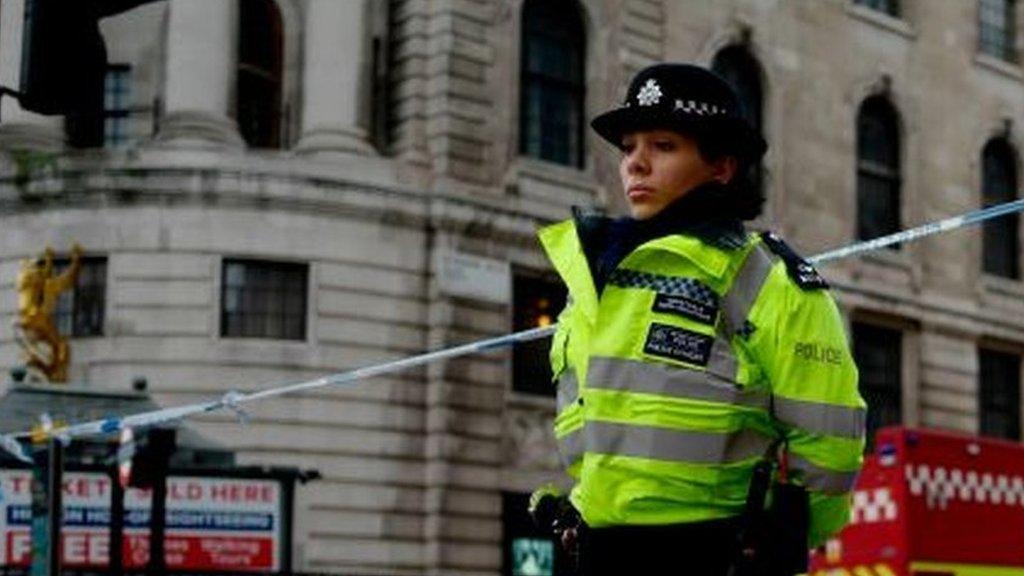Greater Manchester Police: 43% of crimes not fully investigated
- Published
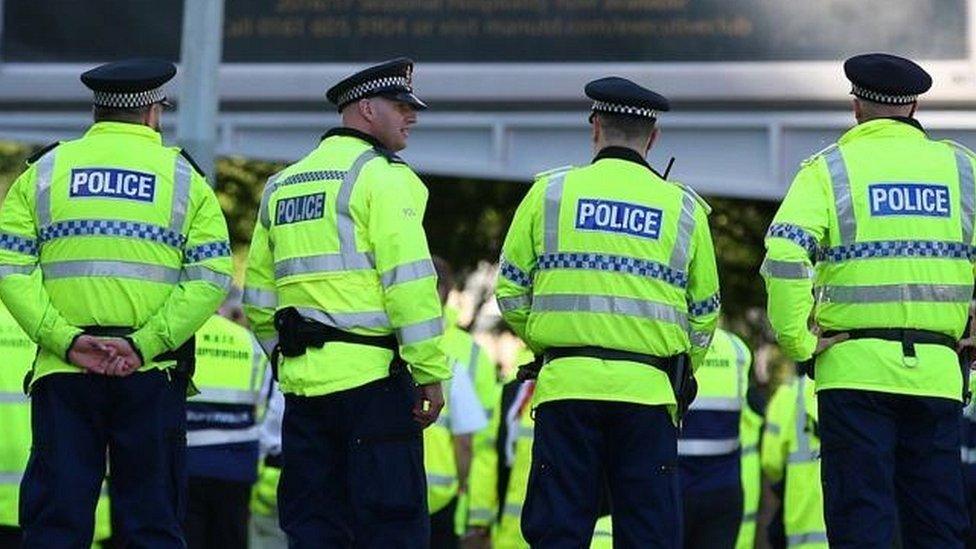
More than 40% of the crimes reported to Greater Manchester Police are 'screened out'
More than 40% of crimes reported to Greater Manchester Police are not fully investigated because of a lack of resources, it has said.
Chief constable Ian Hopkins said budget cuts have meant officers had to prioritise more ruthlessly than ever.
He said about 430 offences a day, such as thefts from vehicles, were being "screened out" and not pursued because "we don't have enough officers".
The Home Office said it was "committed" to ensuring forces have enough funding.
The number of frontline police officers across England and Wales has fallen over the past decade, while violent crime is rising.
Greater Manchester Police (GMP) said it had lost about 2,000 officers during that time, down to about 6,200.
'Necessary evil'
"If your life is in danger, you've been seriously hurt, we will still turn up," Mr Hopkins told BBC Radio Manchester.
"If there's an immediate threat we will be there and we will be there in numbers.
"If your shed's been broken into, your bike's stolen, your vehicle's broken into and there's no witnesses, there's no CCTV and there's no opportunity for forensics, we'll be screening that out really quickly.
"Your likelihood of a police officer turning up to deal with that is almost non-existent and that's where the public have really started to feel it. That bit worries me."
One of Mr Hopkins' senior officers, Supt Rick Jackson, said screening out crimes was "a necessary evil".
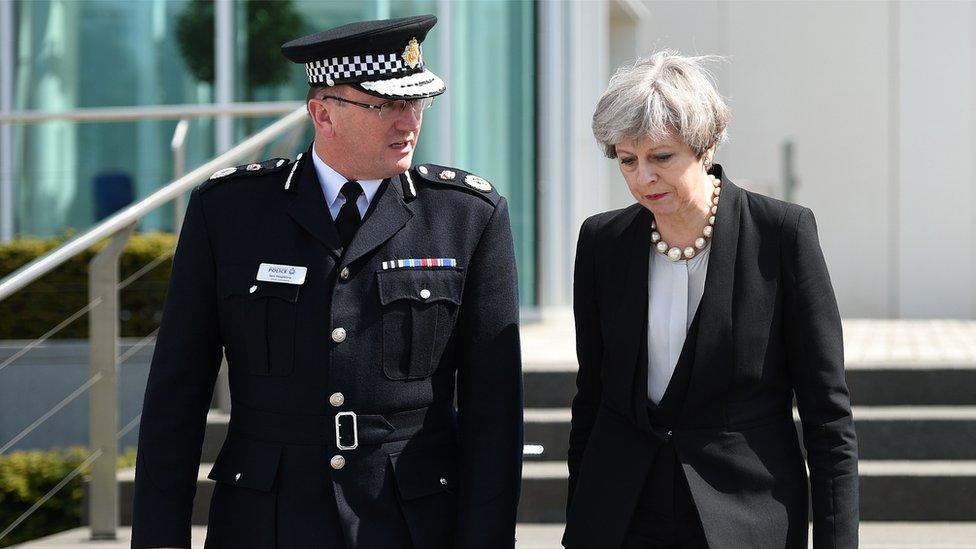
Chief Constable Ian Hopkins met Theresa May following the 2017 Manchester Arena attack
GMP is not the only force to screen reported crimes on the basis of threat and the likely evidence available.
But Mr Hopkins publicly acknowledging the fact that the majority of crimes reported to his force are dropped is thought to be the first time a chief constable has put a figure on this practice.
One man told the BBC he had moved from Manchester to Rossendale in Lancashire after "finally being driven out of the house by crime".
He said: "I was burgled eight times in five years in Cheetham Hill and had vehicles stolen.
"The police would come round and take notes, but they weren't doing anything.
"You could tell by the attitude, there were no forensics done, there was nobody taking in-depth notes and no follow-up."
He said he was left "frustrated and annoyed", adding: "The police are a waste of time."

Bicycle thieves, pickpockets and bag snatchers not found
Police in Greater Manchester did not find a suspect in more than nine out of 10 bicycle thefts, thefts from people or vehicle crimes and in more than eight out of 10 burglaries.
Theft from the person includes bag snatchers and pickpockets but not muggings and robberies.
Data for the year March 2018 to February 2019 also shows that investigations into a quarter of violent and sexual offences were completed with no suspect identified.
The other outcomes, totalling more than four in every 10 recorded crimes, included everything from suspects sent to court to investigations that were not pursued because it was not in the public interest.
The data did not include antisocial behaviour.


In 2018, the chief constable of West Midlands Police said budget cuts and falling police numbers meant his force sometimes provided "a poor service".
"We think the public want us to use our time productively and focus our resources where there is greatest harm and where we can secure a positive outcome," a National Police Chiefs Council spokesman said.
Police chiefs have expressed concern about the impact of falling officer numbers on "proactive policing that prevents crime, solves problems and helps people feel safe," he said.
'Stark reality'
The fall in police numbers is largely the result of changes in central government funding, which is down by almost a third in real terms since 2010.
Mr Hopkins said it accounted for about 80% of his budget.
"We've been promised a funding formula review and that hasn't materialised but that needs to happen," he said.

Increases in council tax, such as that announced in February, which will pay for an extra 320 GMP police officers, "are never going to give Greater Manchester the resources it needs", he added.
The new additions will take the force's strength to about 6,570, compared with 8,219 in 2010.
"The stark reality is that due to years of central government cuts the police simply cannot investigate every crime and have to take difficult decisions about where best to focus their time and resources," said Greater Manchester Deputy Mayor Bev Hughes, who has responsibility for policing in the city region.
"They - and I - wish this were not necessary but unfortunately it is."

Manchester Central MP Lucy Powell said: "It's clear that the government's cuts to police funding is having a real impact on the front line, making it extremely difficult for officers to do their jobs effectively and respond to certain types of crime.
"This should be a wake-up call for ministers who should act to increase resources to tackle crime and disorder."
A Home Office spokeswoman said police funding this financial year would rise by the greatest amount since 2010.
"We recognise the impact crime has on victims and want offenders brought to justice.
"We are committed to ensuring police forces have the resources they need to carry out their vital work," she said.
UPDATE 21:00 BST Tuesday 23 April: In the original version of this story, published at 00:02 BST, we said "about 60% of crimes" reported to Greater Manchester Police were not being fully investigated because of a lack of resources. This came from a BBC interview with Chief Constable Ian Hopkins.
At 18:24 BST Greater Manchester Police said it had "reviewed the figures" and found that "over the past 12 months, 43.4% of crimes are screened out after an initial investigation, not 60% as previously mentioned."
You can hear more about this story on BBC Radio Manchester between 23 and 30 April as well as on BBC Sounds.
- Published23 April 2019
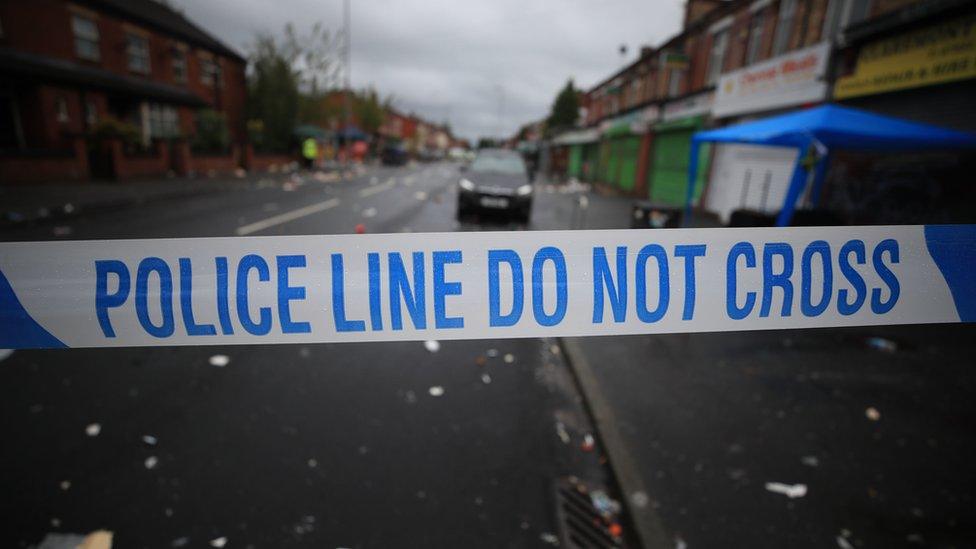
- Published20 March 2019
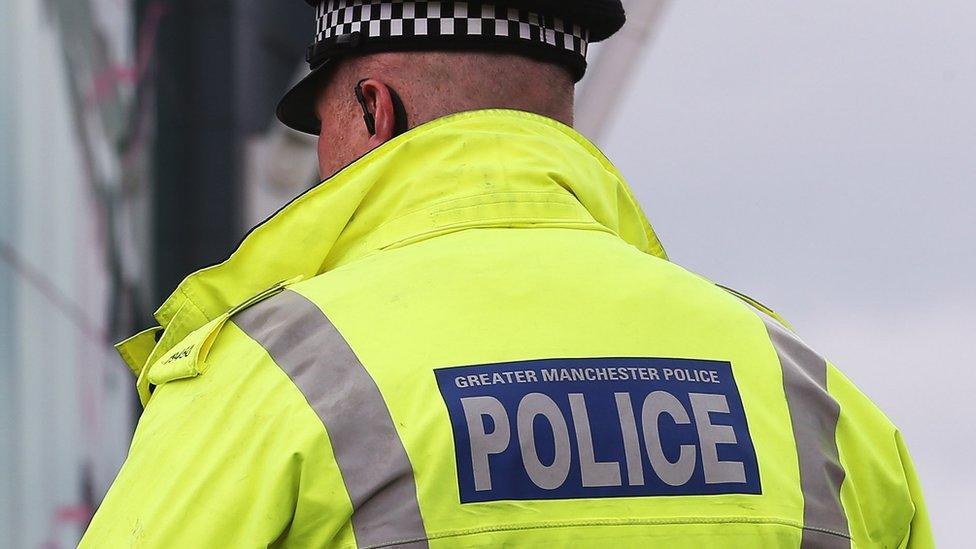
- Published1 February 2019
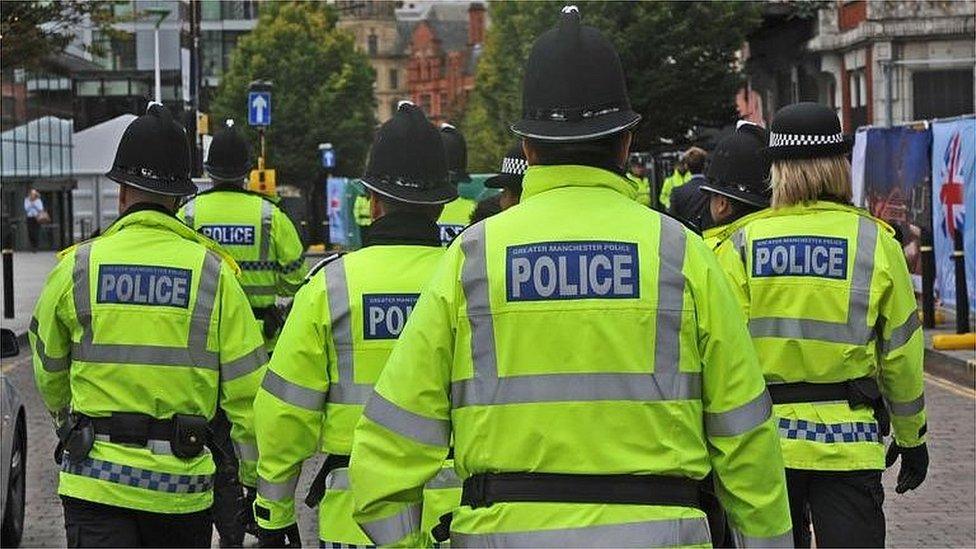
- Published24 January 2019

- Published24 January 2019
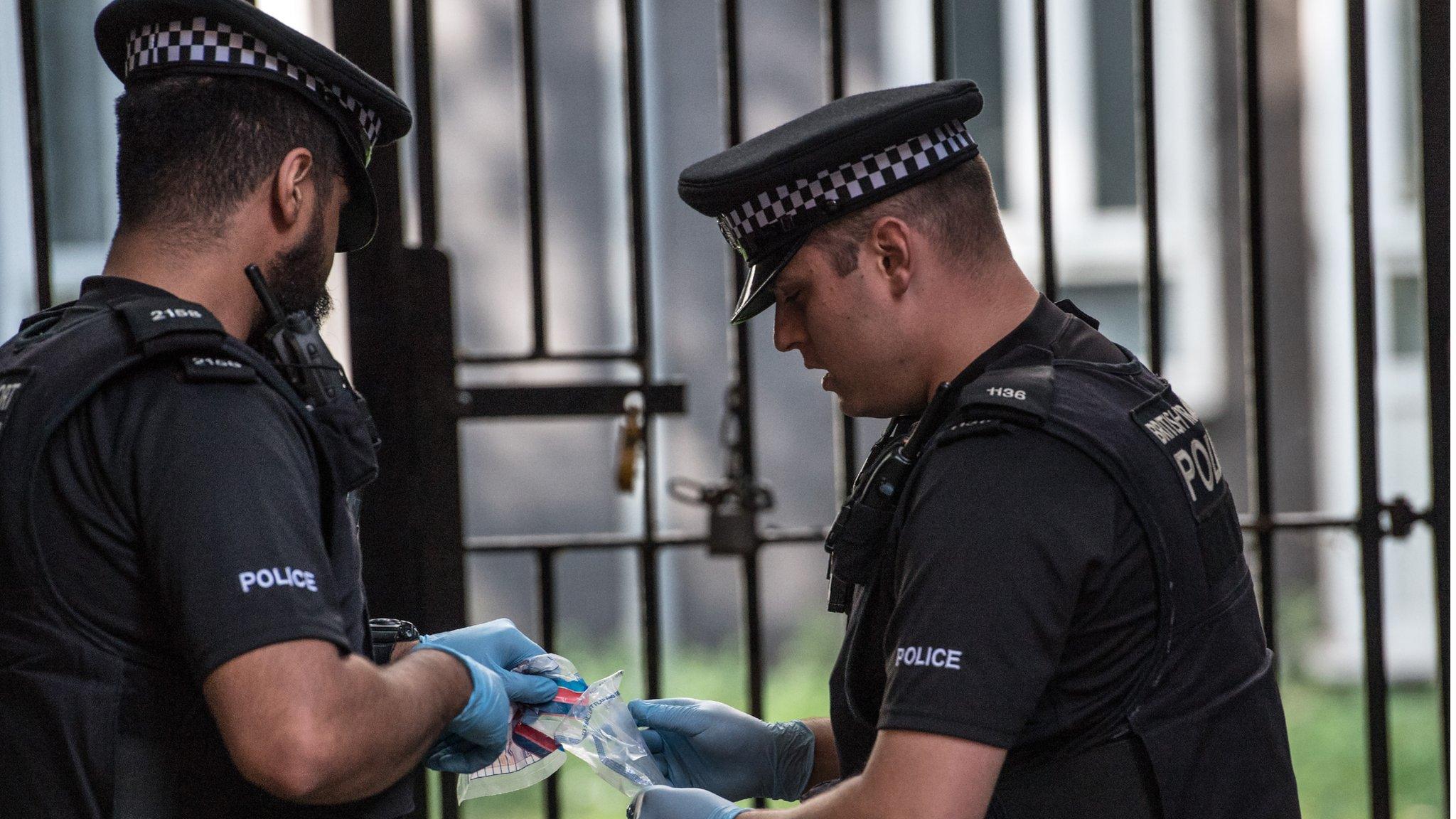
- Published13 December 2018
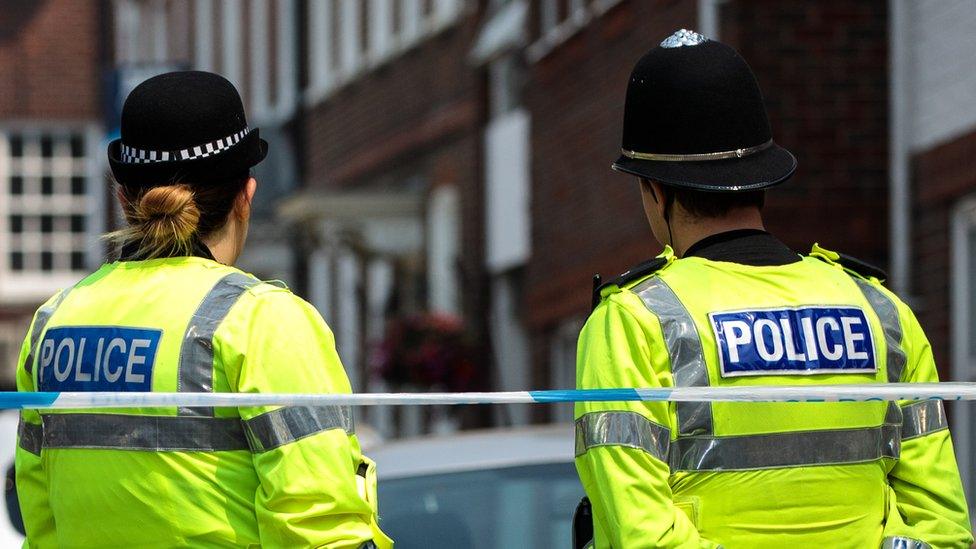
- Published11 April 2018
